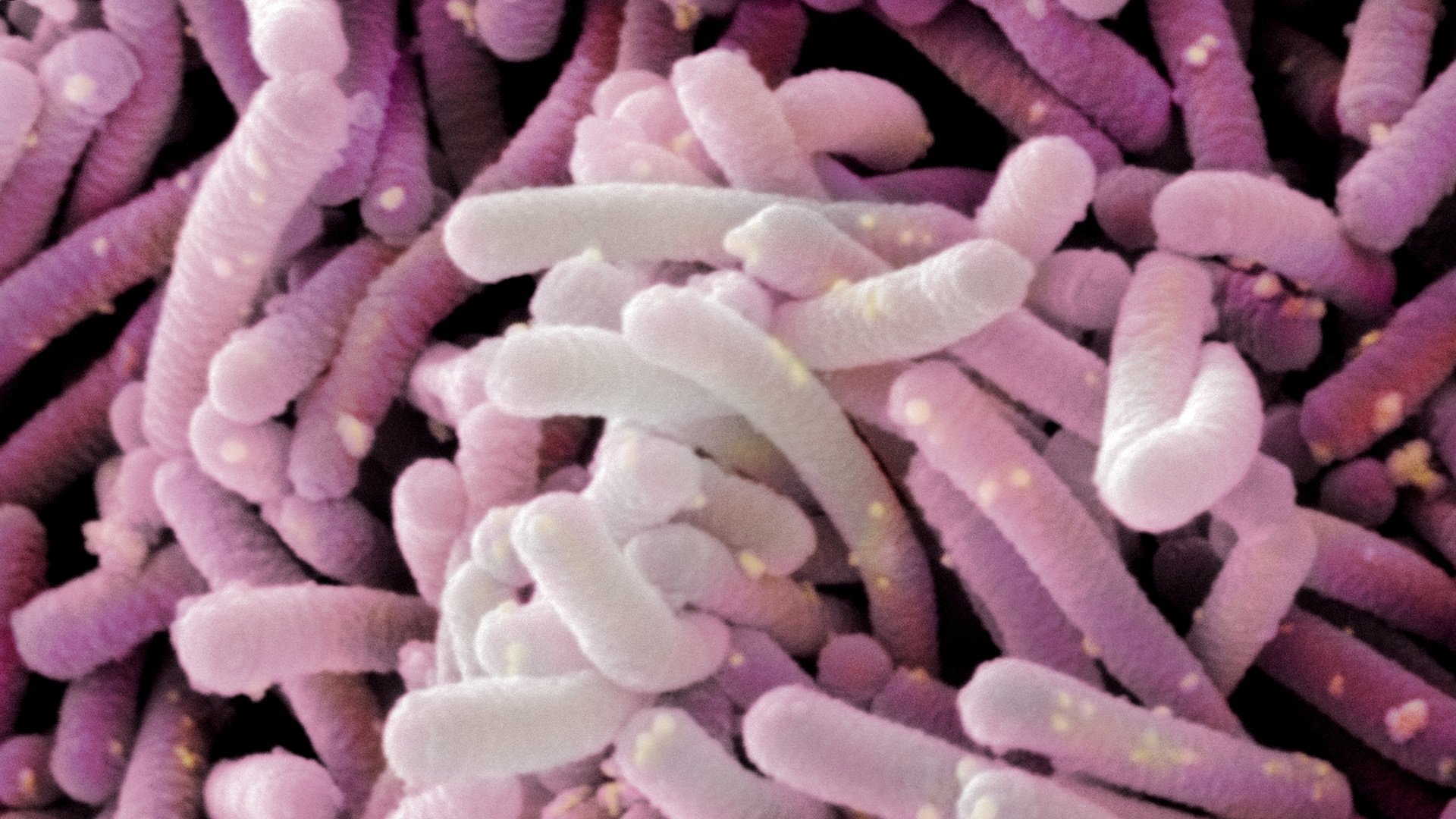L. plantarum is a lactic acid bacterium that is used to ferment certain foods, like sauerkraut. Moreover, the bacterium is a well-known probiotic.
L. plantarum is a lactic acid bacterium that is used to ferment certain foods, like sauerkraut. Moreover, the bacterium is a well-known probiotic.
L. plantarum is an anaerobic bacterium. This means that it survives best in an environment without oxygen. This allow the bacterium to ferment foods: this is an anaerobic process in which sugars are converted to ethanol, lactic acid and CO2.
Superfoods
There are many kinds of fermented foods, like bread, cheese, sauerkraut and wine. Research states that some fermented foods are also beneficial to our health. Many fermenting microbes that are present in these foods produce acids themselves and as a result, they can survive the acidic environment in our stomachs. Once they arrive in our guts, they function as probiotics. During the fermentation process many proteins, fatty acids and vitamins are produced that you also consume.
The fermentation process
From a mix of water and barley to beer. How does such a fizzy, alcoholic drink come about? Fermenting yeasts feed off the sugars in the barley. They convert these into alcohol and carbon dioxide. This makes the drink a lot less sweet and alcoholic. It also creates bubbles. With yoghurt, fermentation is carried out by lactic acid bacteria. These convert the sugar from the milk into lactic acid. This gives yoghurt a sour taste. Sauerkraut is made from white cabbage stored in low-oxygen conditions. The lactic acid bacteria naturally present on and in the cabbage convert the sugars from the cabbage into lactic acid.
Probiotica
Lactobacillus plantarum is also present in our own intestines! Here the bacterium helps us digest our food. Beside this, the species has antibacterial and antioxidative properties and regulate our cholesterol. When our gut microbiome is not in balance, it might help to take probiotics. These food supplements are stuffed with microbes like L. plantarum that survive the acidic environment in our stomachs and arrive in our intestines alive. Here they can help reinforce our gut microbiome.

